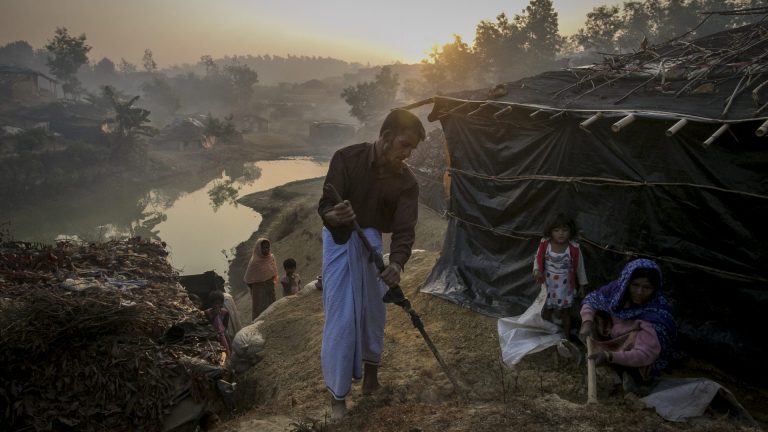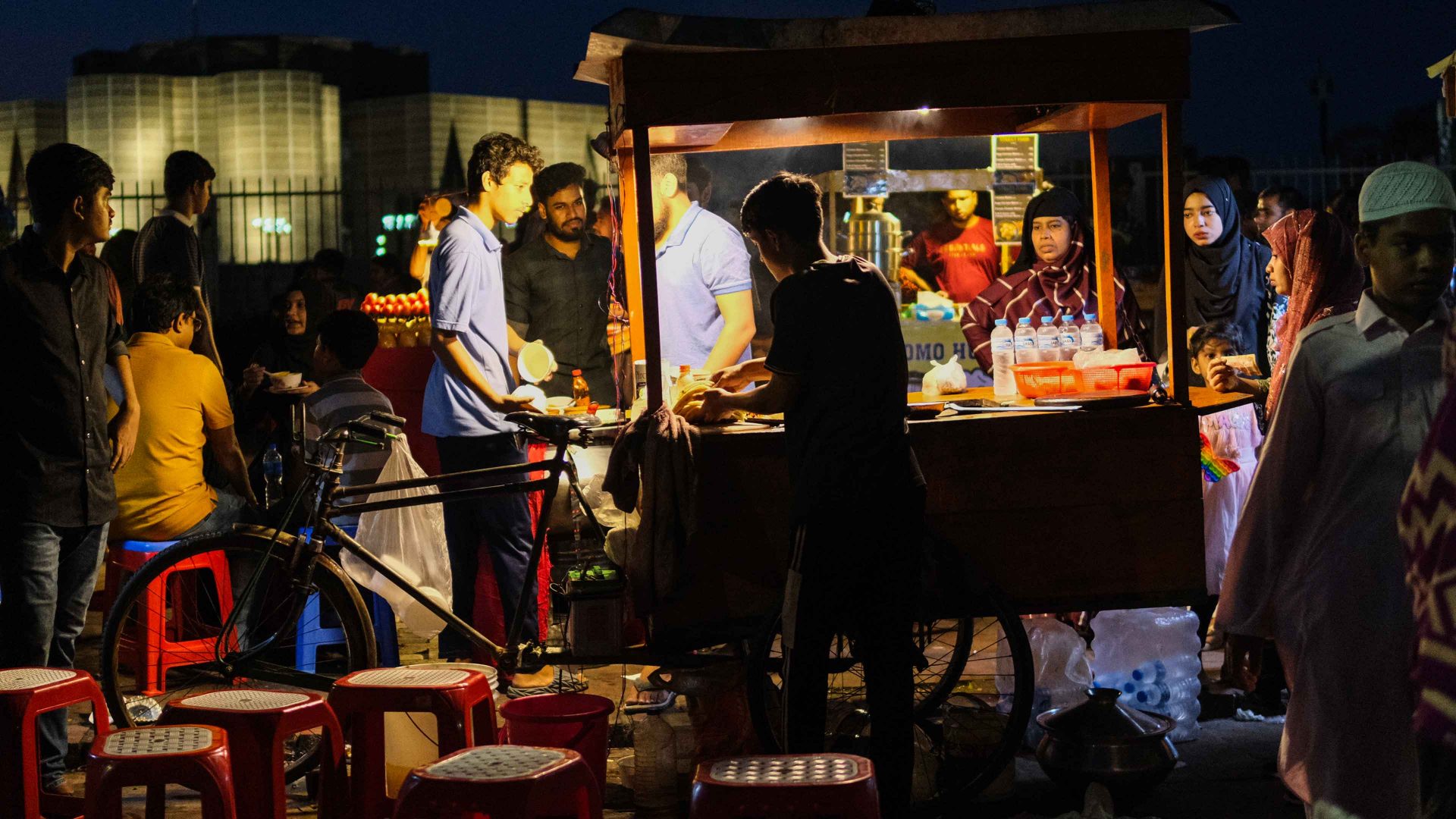The south-eastern hills of Bangladesh are known for their scenic beauty – and their vibrant food culture. Travellers to the hills have always loved dishes like Mundi, Laksu, and Bamboo Chicken. Now, in Dhaka’s streets, particularly in the neighbourhood around parliament, a new fleet of small food carts are bringing these mountain flavours to the capital.
As evening falls, the carts light up and the aroma of steaming food drifts through the air. One of these carts is called “Mundi House”, and it is run by a group of young entrepreneurs, many of them university students. Balancing their studies with business, their aim is to bring their own upland culture to the city’s people. For them, it is both a livelihood and a way of constructing a cultural bridge.
Mundi consists of rice noodles, boiled chicken, egg and powdered dried shrimp, all of it garnished with fresh coriander and served steaming in a bowl. Though broth-based and lightly spiced, customers can adjust the heat to their liking by adding chilli flakes and black pepper. A bowl of Mundi feels like a warm, communal gathering on a hillside and it costs between $0.40–$1.25 per bowl.
When I visited the Mundi House all kinds of people were lining up enthusiastically. Interest in this new street food is also growing on social media. Bit by bit, indigenous cuisine from the highlands is becoming part of the capital’s multicultural food scene.
Another signature dish on offer is Laksu: a vibrant mix of boiled chicken, fresh chillies, chopped onions and lemon juice. Despite these apparently simple ingredients, the balance of lemon, chilli and chicken makes for an explosion of flavour. Laksu will cost you from $0.85–$1.25.
But the star attraction is the Bamboo Chicken, an iconic dish that seems to carry within it the essence of the hills. The chicken is first marinated in spices, then stuffed inside bamboo and roasted over a fire. Cooking it in this way gives a strong smoked flavour. Coriander and spices add their fragrance, but it’s the bamboo’s scent that elevates it to something special. Bamboo Chicken sells for between $2.50 and $8.30, depending on the weight.
Suggested Reading

School’s out for Rohingya child refugees
Shohel is originally from Rangamati, up in the Chittagong hill Tracts, and he came to Dhaka to attend university, but his heart is in cuisine. “I realised how curious city people are about our traditional food,” he said. “Many visit the hill tracts not only for nature but also for the taste of indigenous cuisine. Then I thought, why not make this food available right here in Dhaka?”
Around 10 young men and women were at work on the cart that evening, one of whom was 21-year-old Shinigda Chakma, a first-year honours student and the youngest of six siblings. Classes occupy her mornings, but in the evenings she joins the team. “We work together, laugh, and the day ends before we know it. The income helps me cover my studies and living expenses,” she said.
One of the customers, Manan Morshed, was visiting with his family. “We’ve always enjoyed indigenous food,” he said. “It’s wonderful to have access to it here in the city. The taste isn’t quite as strong as in the hills, but that’s understandable; flavours have been adjusted for broader appeal.”
His wife, Hafsha, called it “a beautiful initiative”. Their daughter, Tanha, was trying Mundi for the first time. Her verdict? “I liked it a lot. I will tell my friends at school to come and try it too.”
Piyas Biswas is a multimedia journalist whose work focuses on climate change, human rights, political conflicts and social issues



